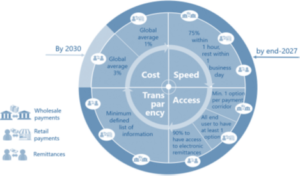Press enquiries:
+41 61 280 8477
[email protected]
Ref: 20/2024
The Financial Stability Board (FSB) Regional Consultative Group for Asia (RCG Asia) met today in Hong Kong SAR.
Members exchanged insights from a workshop on 15 October, co-organised with the International Organization of Securities Commissions Asia Pacific Regional Committee (IOSCO APRC), on the financial stability implications of crypto-assets, tokenisation and artificial intelligence. Participants discussed how the new regulatory environment for crypto-assets has led to the creation of more exchanges, fragmenting liquidity across jurisdictions and creating an uneven playing field with entities that reside outside the regulatory perimeter. Increased convergence between decentralised finance and traditional finance necessitates enhanced monitoring and greater supervisory and regulatory cooperation within and across borders. Members supported collaboration between RCG Asia and IOSCO APRC on future issues of significance to financial stability.
The group then discussed global and regional financial market developments. Recent market volatility in the region highlights ongoing concerns over the macroeconomic environment. Members also discussed the role of technology in the financial system, leading to new interconnections and dependencies, as demonstrated by the CrowdStrike outage and operational disruptions in high-value messaging and payments systems in July.
Members acknowledged the relevance of the FSB’s toolkit for third-party risk management, which aims to help financial institutions monitor, identify, and manage risks arising from third-party services. They noted that operational risks are compounded by the increasing number and complexity of financial fraud cases. The group discussed these challenges and explored the scope for better cross-border and cross-agency cooperation.
Reflecting on lessons from the 2023 banking turmoil, members shared information on recent changes to their resolution strategies and tools. They reviewed progress in implementing the FSB Key Attributes for Effective Resolution Regimes for Financial Institutions. Members look forward to the FSB’s upcoming report, which will summarise the work on interest and liquidity risk and on depositor behaviour and the role of technology and social media.
Members received an update on the FSB’s work programme for 2024 and shared their thoughts on areas for consideration as the FSB develops its plans for 2025.
Notes to editors
The FSB RCG Asia is co-chaired by Eddie Yue, Chief Executive, Hong Kong Monetary Authority and P Nandalal Weerasinghe, Governor, Central Bank of Sri Lanka. Membership of the RCG Asia comprises financial authorities from Australia, Brunei Darussalam, Cambodia, China, Hong Kong SAR, India, Indonesia, Japan, Korea, Malaysia, New Zealand, Pakistan, Philippines, Singapore, Sri Lanka, Thailand and Vietnam.
The FSB has six Regional Consultative Groups, established under the FSB Charter, to bring together financial authorities from FSB member and non-member countries to exchange views on vulnerabilities affecting financial systems and on initiatives to promote financial stability.1 Typically, each Regional Consultative Group meets twice each year.
The FSB coordinates at the international level the work of national financial authorities and international standard-setting bodies and develops and promotes the implementation of effective regulatory, supervisory, and other financial sector policies in the interest of financial stability. It brings together national authorities responsible for financial stability in 24 countries and jurisdictions, international financial institutions, sector-specific international groupings of regulators and supervisors, and committees of central bank experts. The FSB also conducts outreach with approximately 70 other jurisdictions through its six Regional Consultative Groups.
The FSB is chaired by Klaas Knot, President of De Nederlandsche Bank. The FSB Secretariat is located in Basel, Switzerland and hosted by the Bank for International Settlements.
